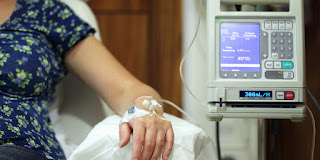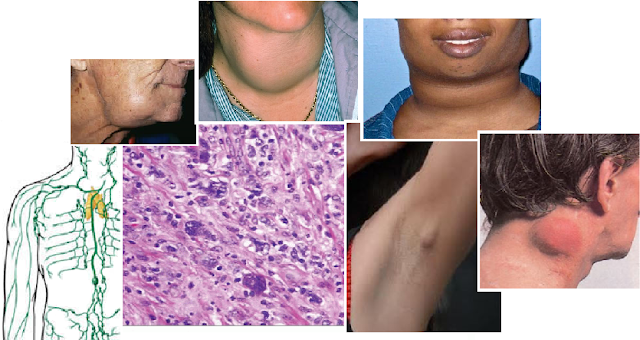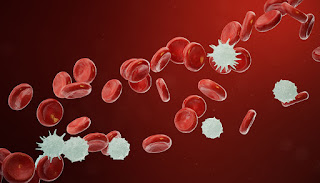Chemotherapy: Common Myths And Misconception Part 2
For decades, doctors around the world have been advising patients on chemotherapy to treat various diseases. However, patients are still concerned about the use of chemical drugs and their related side effects, regardless of the results of the treatment for them.
We have discussed 4 myths in part one and now we are going to discuss more myths.
Myth 5: Nausea and vomiting are the two main side effects of chemotherapy.
Fact: General illness in the form of nausea and vomiting used to be the main chemical side effect. However, this has changed a lot in recent years. Now, some medicines are prescribed to patients before chemotherapy. These drugs work by suppressing chemical side effects such as nausea and vomiting.
However, some patients may feel tired after several chemotherapies. Fatigue is one of the most common chemical side effects, which accumulates over several courses. When patients participate in five to six chemotherapy sessions, they may begin to experience this major chemical side effect.
Myth 6: The cost of chemotherapy for all types of cancer is almost the same.
Fact: Not all chemotherapy drugs cost the same in the world or in a country. The cost of chemotherapy varies from country to country, city to city.
For example, the cost of chemotherapy in India is cheaper than any other Western country including the United States and the United Kingdom. This is because most chemotherapy drugs are produced in India. Products that are not produced in the country are imported from other countries and the prices are very reasonable. For any other country, this may not be the case.
In case you are looking for an oncologist in Delhi NCR You should one visit this.
In addition, the cost of chemotherapy depends on the type of medicine used. The drug use depends on the type of cancer that needs treatment. Some medicines are more expensive than others, so the prices are different. For example, due to the use of another group of drugs, brain chemotherapy may cost more than skin cancer chemotherapy.
Myth 7: Chemotherapy drugs are given through intravenous (IV) infusions that require hospitalization.
Fact: Intravenous infusion is only one way to administer chemotherapy drugs. Not all medicines require patients to stay in the hospital for intravenous infusion.
Now, most chemotherapy drugs are taken orally in the hospital or at home. Some of them are administered topically or by intramuscular injection. Therefore, in this case, the patient does not need to stay in the hospital. Even in the case of intravenous infusions, today, once the chemotherapy drugs are successfully administered, patients will be released on the same day.
Myth 8: Immunotherapy is effective and safer than chemotherapy.
Fact: Immunotherapy is a treatment that patients expect, not chemotherapy to treat cancer. However, these two treatment methods have completely different mechanisms of action. The former uses the patient's immune system to kill cancer cells, while the latter directly kills cancer cells.
For the same reason, immunotherapy is not popular because it depends entirely on the ability of the patient's immune system to fight cancer cells. Even clinical studies have not confirmed the effectiveness of immunotherapy in treating all forms of cancer.
On the other hand, chemotherapy has been used for decades. It is very successful in the treatment of cancer, and its importance cannot be weakened by any other alternative treatments, whether it is immunotherapy or other methods.
We have discussed 4 myths in part one and now we are going to discuss more myths.
Myth 5: Nausea and vomiting are the two main side effects of chemotherapy.
Fact: General illness in the form of nausea and vomiting used to be the main chemical side effect. However, this has changed a lot in recent years. Now, some medicines are prescribed to patients before chemotherapy. These drugs work by suppressing chemical side effects such as nausea and vomiting.
However, some patients may feel tired after several chemotherapies. Fatigue is one of the most common chemical side effects, which accumulates over several courses. When patients participate in five to six chemotherapy sessions, they may begin to experience this major chemical side effect.
Myth 6: The cost of chemotherapy for all types of cancer is almost the same.
Fact: Not all chemotherapy drugs cost the same in the world or in a country. The cost of chemotherapy varies from country to country, city to city.
For example, the cost of chemotherapy in India is cheaper than any other Western country including the United States and the United Kingdom. This is because most chemotherapy drugs are produced in India. Products that are not produced in the country are imported from other countries and the prices are very reasonable. For any other country, this may not be the case.
In case you are looking for an oncologist in Delhi NCR You should one visit this.
In addition, the cost of chemotherapy depends on the type of medicine used. The drug use depends on the type of cancer that needs treatment. Some medicines are more expensive than others, so the prices are different. For example, due to the use of another group of drugs, brain chemotherapy may cost more than skin cancer chemotherapy.
Myth 7: Chemotherapy drugs are given through intravenous (IV) infusions that require hospitalization.
Fact: Intravenous infusion is only one way to administer chemotherapy drugs. Not all medicines require patients to stay in the hospital for intravenous infusion.
Now, most chemotherapy drugs are taken orally in the hospital or at home. Some of them are administered topically or by intramuscular injection. Therefore, in this case, the patient does not need to stay in the hospital. Even in the case of intravenous infusions, today, once the chemotherapy drugs are successfully administered, patients will be released on the same day.
Myth 8: Immunotherapy is effective and safer than chemotherapy.
Fact: Immunotherapy is a treatment that patients expect, not chemotherapy to treat cancer. However, these two treatment methods have completely different mechanisms of action. The former uses the patient's immune system to kill cancer cells, while the latter directly kills cancer cells.
For the same reason, immunotherapy is not popular because it depends entirely on the ability of the patient's immune system to fight cancer cells. Even clinical studies have not confirmed the effectiveness of immunotherapy in treating all forms of cancer.
On the other hand, chemotherapy has been used for decades. It is very successful in the treatment of cancer, and its importance cannot be weakened by any other alternative treatments, whether it is immunotherapy or other methods.




Comments
Post a Comment